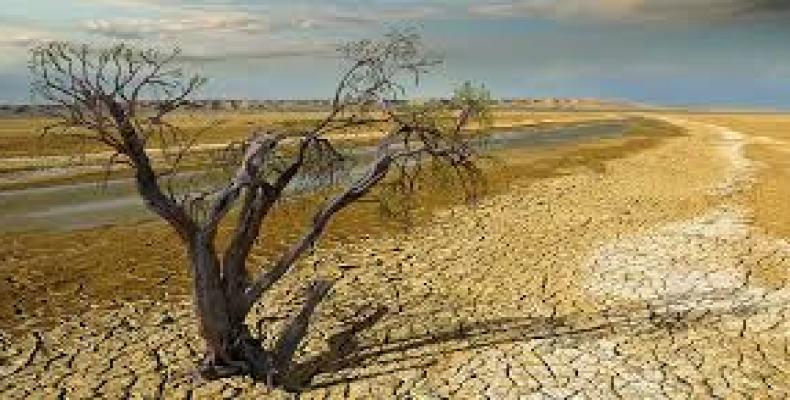Paris, July 10 (RHC)-- Global temperatures will continue to warm over the next five years, and may even temporarily rise to more than 1.5 degrees Celsius above pre-industrial levels, the World Meteorological Organization (WMO) has announced.
That does not mean the world would be crossing the long-term warming threshold of 1.5C (2.7 Fahrenheit), which scientists have set as the ceiling for avoiding catastrophic climate change.
But it does show the warming trend continuing apace, underlining the “enormous challenge” the world faces in meeting the 2015 Paris Agreement’s goal of curbing climate-warming emissions enough to keep the rise in temperatures “well below” 2°C, said WMO Secretary-General Petteri Taalas.
The WMO said there was a 20% chance that average annual temperatures, which fluctuate from year to year, could hit the 1.5C mark in any year between 2020 and 2024. Meanwhile, each of those years is “likely” to be at least 1C above pre-industrial levels, with nearly every region feeling the effects.
Southern Africa and Australia, where bushfires last year razed millions of acres, will probably be dryer than usual through 2024, while Africa’s Sahel region will likely be wetter, the WMO said. Europe should see more storms, while the northern North Atlantic will be windier.
The projections are part of a new WMO effort to provide shorter-range forecasts of temperature, rainfall and wind patterns, to help nations keep tabs on how climate change may be disrupting weather patterns. However, the world will probably not reach the long-term 1.5C warming threshold for at least another decade.
Currently, the long-term trend has average global temperatures at about 1.2C above pre-industrial levels, said Michael Mann, a climatologist at Penn State University. “Right now, we’re in the middle of a positive fluctuation that has global temperatures at about 1.4C above the pre-industrial level,” Mann said. “We don’t expect that level of warmth to persist. We expect to see temperatures again fall toward or below the trend line over the next couple years.”
Marcelo Mena, a former Chilean environment minister and now director of the Climate Action Center at the Pontifical Catholic University in Valparaiso, said even short-term rises could trigger extreme weather events, which could add strain to nations already struggling with the coronavirus outbreak.
“There are going to be years that are higher than the projections, and years lower, but the fact that we have this increase in this context shows us that some of these symbolic events are closer to home than expected,” he said.


